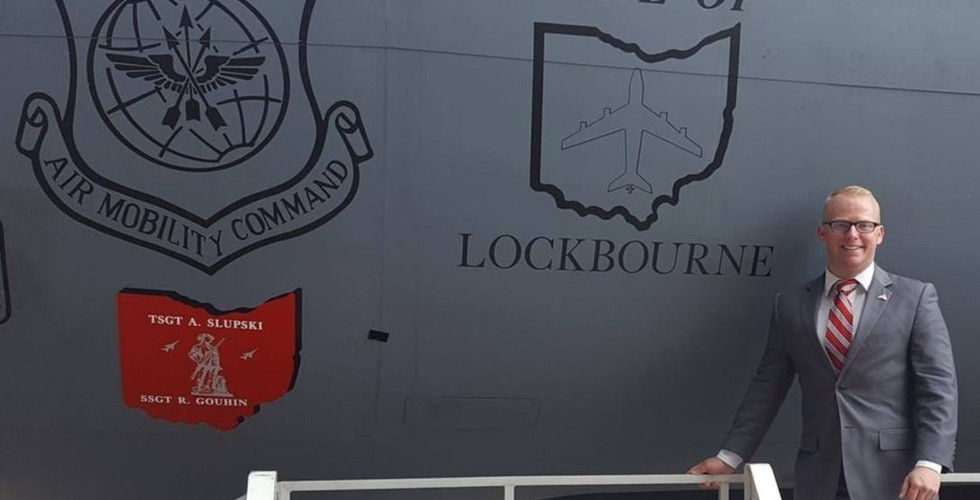Stories of Impact: Brandon Barcus
- Travis Hoewischer
- Mar 4, 2024
- 4 min read
Updated: Mar 5, 2024
In Gladden Community House’s 119 years of service, we’ve had countless generations of kids, families, and seniors walk through our doors, and it’s frequent that we have people return to the agency to talk about the impact GCH has had on their lives.
We recently were paid a visit by Brandon Barcus, who, in addition to currently mounting a campaign for a District 6 Ohio House seat, served as an Army reservist and got a bachelor’s degree in social work—a career he says was inspired by seeing the help agencies like Gladden offer to the community.
Brandon talked to us about how social work shaped his upbringing and instilled in him a desire to give back to the community.
Can you briefly discuss what Gladden House meant to you and your development as a kid?
Gladden has been instrumental in creating the person I’ve become. I am a product of the afterschool middle and high school boys program, where I had afterschool academic support, developed problem-solving and critical thinking skills, fostered healthy relationships, and, importantly, had a safe place to be that kept me off the streets and with a community that cared for me.
You talk in our campaign about service and community. How did your upbringing or time at Gladden and on the West Side inform that focus? Why are those two things important to you?
I was raised by Gladden. When my family went without food, Gladden food pantry was there. When I felt unsafe on the street, the Gladden afterschool boys group was there. When I needed people who genuinely cared about me and my growth, Gladden staff was there. I was raised by my community and by impactful people dedicated to service before self. For me, my campaign for State Representative is about just that: service above self and giving back to the community that raised me.
Whether in the community or the armed forces, you’ve been “serving” for a long time. I know giving back is essential to you. Can you tell me a moment when and why that clicked for you?
It made sense to me when I left for college at OU. Trying to figure out what I wanted to do with my career, I saw other students interested in pursuing computer science degrees, accounting, or visual communications. All are worthwhile pursuits, but for me, the only thing that made sense was to pursue a social work degree. I was raised by social workers, and having been blessed by so many people who cared openly and without condition, I realized that’s the kind of person I wanted to be. Someone who shows up for the community that raised him, just as I had a community of people who showed up for me.
The West Side has changed a lot over recent years. What are the main things you want people to know about this area of the city, and what are the most important you want to advocate for on its behalf?
While there have been injections of capital and interest into our west side, there is still a lot of pain and promise in our community. My father passed away due to opioids, and I am proud to advocate in his honor for opioid treatment expansion in our state. On average, property taxes in Franklin County rose 40 percent, and some in our community are paying much much more as a result. We need to fight to ensure people can age with dignity in their own homes and not get pushed out due to being priced out of our community. People are struggling to make ends meet and are getting squeezed financially; our community members deserve someone who will fight to ease their financial burdens so they can enjoy opportunities inherent to people who grew up in wealthier ZIP codes.
"I was raised by social workers, and having been blessed by so many people who cared openly and without condition, I realized that’s the kind of person I wanted to be."
What drew you to politics?
I went to an advocacy day with the National Association of Social Workers Ohio Chapter. I had the opportunity to advocate for underserved populations in central Ohio when I sat down with (then-state representative) Michael Stinziano. He offered me an internship as a constituent liaison, where I would respond to inquiries by community members and connect them with vital services in our area, such as electricity and down payment assistance programs. That showed me what good government looked like having someone on the other end of the line when you call in and caring deeply enough to find every opportunity to help you. I learned servant leadership in Rep. Stinziano’s office, and that is the type of Representative I will be for our West Side communities.
If a parent asked you about the value of a place like Gladden, what would you tell them about being a part of our programs?
Gladden is a crucial staple for Westside families. From vital services like food pantry to recreational activities like youth basketball and afterschool tutoring, Gladden has shown itself time and time again that the staff is here to serve our community, and the work that Gladden staff does changes lives. Gladden changed my life, and if you allow your kids to participate in their programs, Gladden will also change their lives.











